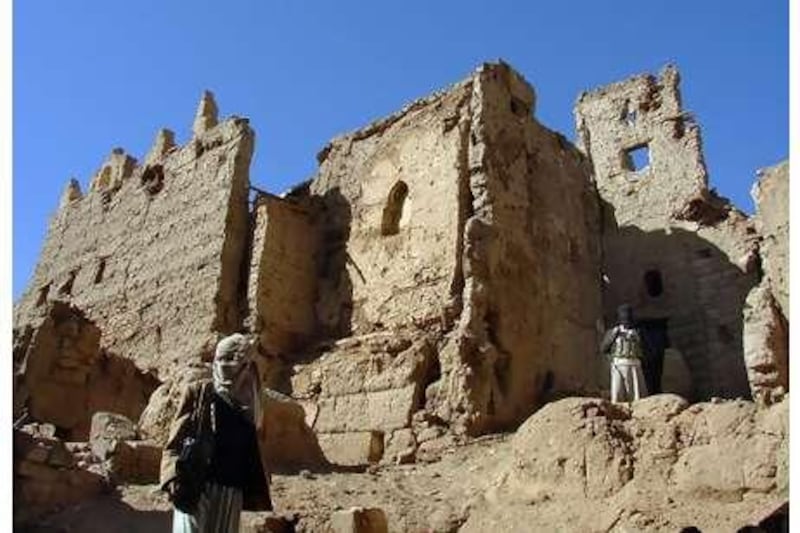SANA'A // Peace will not be achieved in northern Yemen until the government releases all the prisoners it captured during years of conflict, a Zaidi rebel group said after signing a deal to bolster a fragile truce. The rebels, known as Houthis, reached an agreement with the government after talks in Doha last week to try to end the conflict, which began in 2004 and left thousands dead. Sporadic fighting since then displaced 350,000 people, according to the United Nations.
Mohammed Abdulsalam, a spokesman for the Houthi fighters, said the agreement, signed late on Thursday, would guide both sides towards meeting the obligations of a truce reached in February that has been punctuated with violence from both sides. According to the new deal, the government will release rebel prisoners and the Houthis will return stolen Yemeni military weapons to the Qatari mediator. Mr Abdulsalam said the 22-point agreement also focused on the return of refugees and providing medical aid and food to people living in the north and those who have been displaced. The Houthis also want medical treatment for those with injuries sustained in the fighting and help with reconstruction.
"We cannot accept any compromise in the question of prisoners. The regime and anyone should understand that there cannot be any peace while there are prisoners in jails. Holding even a single prisoner means that tension is still there," Mr Abdulsalam said in an interview. The rebels claim more than 1,000 of their members are in government prisons, a claim rejected by the government, which says dozens have been set free.
Mr Abdulsalam said all the fighters al Houthis captured had been released and that the last batch of 200 was set free before the holy month of Ramadan. Other points in the agreement called for the removal of landmines throughout the region, a guarantee of safe passage from both sides allowing displaced people to return home, and the release of any schools, government buildings or homes that had been seized by the rebels.
Qatar brokered a north Yemen peace accord in 2008, but the region slipped back into a war that drew in Saudi Arabia last summer. "Despite the significant role played by Qatar, the real guarantee for the successful implementation of the peace accord is the political leadership's will to have peace," Mr Abdulsalam said. He also said reaching peace in the north is the key to solving other challenges facing the country, including a growing separatist movement in the south, a surge in al Qa'eda attacks and the economic hardship faced by the bulk of the population.
Abdulghani al Eryani, an independent analyst, said there is optimisism that the new deal will hold. "It is clear that the commitment from both sides to maintain peace is genuine because both sides have been exhausted by war. "I am confident it will hold as both sides have no choice." However, Mr al Eryani said, the biggest obstacle for the deal is the release of Houthi prisoners. "It is important also to be able to ensure the continuation of the Qatari mediation without which the negotiations could collapse," Mr al Eryani said. The government has not commented on the signed deal, but officials said last week that Sana'a would focus on efforts to enhance peace in Sa'ada, the northern province where the Houthis are based.
Yemen's government announced a truce in February after the rebels, who belong to the offshoot of Shia Islam, accepted conditions imposed by Sana'a and a timetable for reaching a peace deal. The government's conditions also included the Houthis' withdrawing from official buildings and abandoning military posts they seized, reopening roads, respecting the law and the constitution, and pledging not to attack Saudi Arabia. Despite the truce, sporadic clashes in Sa'ada and Harf Sufian, in neighbouring Amran province, particularly between rebels and pro-government tribes, have killed dozens of people in the past few months.
The government has accused the rebels of seeking to restore the Zaidi Shiite imamate that ruled in Sana'a until it was overthrown in a revolution in 1962. The rebels, however, complained of social, religious and economic discrimination. @Email:malqadhi@thenational.ae





